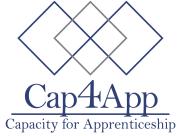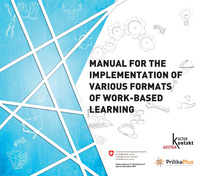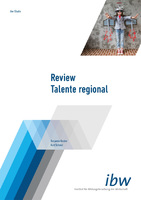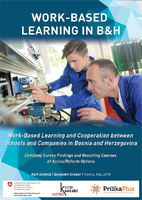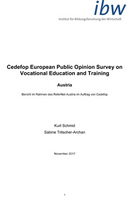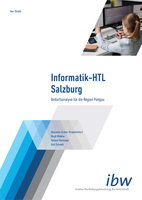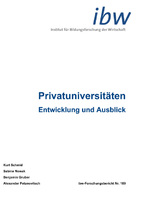Rund zwei Drittel der unselbständig Beschäftigten in Europa sind bei KMUs beschäftigt. Die Wahrscheinlichkeit, dass diese Betriebe auch Ausbildungsbetriebe sind, ist verhältnismäßig gering. Als Hauptgründe für die geringe Ausbildungsbereitschaft gelten der Mangel an zeitlichen und personellen Ressourcen, unzureichende Kenntnis der Gesetzeslage und der Verwaltungserfordernisse. Darüber hinaus werden die Vorteile der betrieblichen Ausbildung von den KMUs oftmals nicht erkannt.
Im Rahmen des Erasmus+-Projektes wurden in elf Ländern (Belgien, Bulgarien, Frankreich, Italien, Lettland, Rumänien, Spanien, Tschechien, Zypern, Serbien und die Türkei) „Apprenticeship-Coaches“ zu qualifizierten Beraten ausgebildet, die KMUs zur Teilnahme als Ausbildungsbetriebe motivieren sollen. Zur Unterstützung der Apprenticeship-Coaches wurden ein umfangreiches Instrumentarium und Beratungsunterlagen entwickelt: „EU template apprenticeship support toolbox“ (https://www.ac4sme.eu/tips-tools/).
Aufgrund ihrer Erfahrung als Länder mit etablierten Lehrlingssystemen fungierten Österreich (und Deutschland) primär als Ideengeber, wissenschaftliche Begleiter und „kritische Freunde“. Der Projektlead lag bei Eurochambres, Projektpartner waren die Arbeitgeberorganisationen der angeführten Länder. Das ibw unterstützte den Projektpartner WKO mit seiner wissenschaftlichen Expertise und seiner breiten Palette an Entwicklungstools.

Dieses Projekt wurde mit Unterstützung der Europäischen Kommission finanziert.
Die Verantwortung für den Inhalt dieser Veröffentlichung trägt allein der Verfasser;
die Kommission haftet nicht für die weitere Verwendung der darin enthaltenen Angaben.
AC4SME – Apprenticeship Coaches for SME – is a large scale European project launched under the coordination of EUROCHAMBRES and implemented by Chambers of Commerce & Industry in 12 countries (Austria, Belgium, Bulgaria, France, Italy, Latvia, Romania, Spain, Czech Republic, Cyprus, Serbia und die Turkey).
AC4SME is a response to the observation that Small and Medium-sized enterprises are not as much involved in apprenticeship than larger companies, whereas these SMEs represent two-third of private sector employment in Europe. Main obstacles encountered by SMEs to offer apprenticeship placements are:
- a lack of time and human resources
- too scarce knowledge of the legislation and administrative requirements
- and low understanding of the benefits of taking on apprentices.
The main objective of AC4SME is to involve a growing number of SMEs in apprenticeship.
AC4SME trained about 26 SME apprenticeship coaches in Chambers of Commerce. These coaches have been provided with adequate tools and skills in order to stimulate and convince SMEs to offer more apprenticeship placements. In this way, the 26 apprenticeship coaches will offer direct guidance to SMEs willing to host an apprentice. For the support apprenticeship coaches, an extensive toolbox has been developed.
ibw supported the project partner WKO by providing scientific expertise and with its broad range of development tools.

The European Commission support for the production of this publication does not constitute an
endorsement of the contents which reflects the views only of the authors, and the Commission
cannot be held responsible for any use which may be made of the information contained therein.
Kontakt/Contact: Kurt Schmid
Projektzeitraum/Project duration: 2017 - 2018

